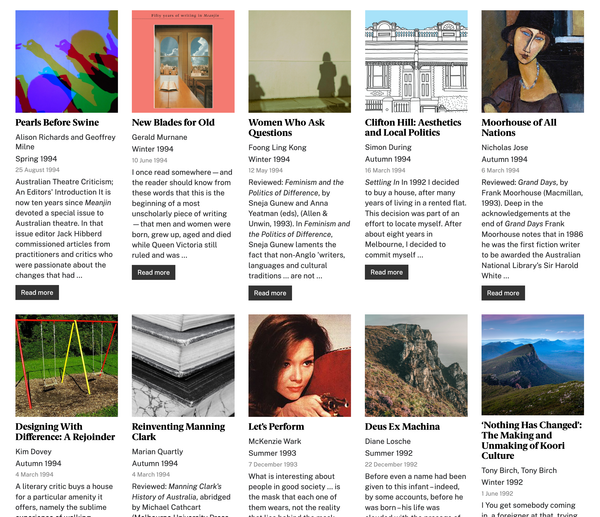Big Feelings
Cashing in on anger and despair.

Catriona, it is okay to feel sad and disappointed about the outcome of the presidential election.
Now is not the time to throw up our hands.
My heart is full, Catriona. Full of gratitude for the trust that you have placed in me, full of love for our country, and full of resolve.
We want to acknowledge the fear, confusion, and sadness many of you are feeling at this moment.
I think we’re all feeling a little bit of sadness right now.
We know that you are probably feeling a mix of fear, anger and concern about what's to come.
These are all sentences plucked from emails sent to me by the Democratic National Convention in the last week. Big feelings, right? Anger! Fear! Love! Sadness! (Absent: Shame! Resentment! Jealousy!)
Sometime in October I registered to join a Writers and Readers for Harris call, mainly because Elif Batuman was part of it. Events got ahead of me: I didn’t make the call; I didn’t watch the live-feed; I stayed on the mailing list. Tim Walz emailed me, Doug Emhoff emailed me, Kamala Harris emailed me on the daily.
This week I’m fending off a blizzard of cautious and respectful injunctions about how to manage my feelings. Perhaps these missives are intended to mobilise the collective grief of all those folks who voted against Trump and are frightened of what he will now do with his mandate. They’re a call to action, sure. But the reason these emails have been sent is to prompt the feeling, aching, loving, raging recipient of the email to make a political donation: ‘Whether we have the resources to ensure every vote is counted or not in these races depends on folks like you making a donation today.’ After spending a billion dollars on the Harris campaign, the hat is being passed around for whatever the next brilliant strategic move against Trumpism turns out to be.
How do I read these emails? I find them cynical and infantilising. If I could have voted for Harris, I would have done so – in spite of, well, everything, including and not limited to Gaza and her immigration policy and her climate policy and the tough on crime stuff. Right now, though, I’m still a spinning hub of multidirectional fury and one target of that anger is the way the people who were supposed to be the least-worst option on the ballot are trying to cash in on my emotions. We know that you are probably feeling a mix of fear, anger and concern about what's to come: listen to the tinny condescension of that sentence! Why waste any attention on this? Because the people who send these emails treat anger and sadness and grief as fundraising opportunities and that doesn’t fill with with any optimism about a new approach to electoral politics.
Last Trump cycle a cohort of literary critics emerged who insisted that social justice considerations needed to be kept out of art, making like they’d just discovered art for art’s sake. They got a lot louder during the Biden years. I am braced for more hollow aestheticism, just as I am braced for more sanitised fundraising emails. Like those pundits who quickly trundled out their pre-fab columns blaming identity politics (like any of them ever wanted to talk about gender or race), I do have a piece I prepared earlier.
Last newsletter I posted a link to a long review I wrote of books of criticism by Lauren Oyler and Becca Rothfeld, published earlier in the month in the SRB. The essay is called Enemies of Goodness, and I should have credited SRB ed James Jiang with the title. (Mine was ‘Let People Criticise Things’; his is much better.) Both Rothfeld and Oyler take the view that politics should be kept out of art and criticism, that too much social justice thinking gets in the way of aesthetic evaluation, especially on social media. I’ll quote myself here: ‘Oyler and Rothfeld are both far too savvy to rail against cancel culture and woke-ism, as some retrograde middle-aged journalist might, but in the context of contemporary culture, that is the terminus of their complaints about the pollution of culture by politics. It’s a sign of the success of this strategy of refusing the political that the reviews to date of these two collections have had very little to say about their political orientations.’
Rothfeld’s position is expressed much more coherently, and hangs on a distinction, tenuous to me but perfectly acceptable to some, between aesthetic egalitarianism and economic egalitarianism, a rerun of the public-private split. My sense is that Oyler is well known to readers of this newsletter, notorious, even, and Rothfeld perhaps less so. If I were making predictions I’d say that we will hear a lot more from Rothfeld in the coming years. They’re both captivating critics - well, I’ve been captivated by their magazine work - who rose to prominence via essays that went viral on Twitter (remember Twitter). Part of the work of the essay is to historicise the viral essay: that epoch is over, baby. It was also a chance to think about their liberalism - overt in Rothfeld’s case, implied in Oyler’s - and their infuriating insistence that keeping politics out of art and criticism is a courageous and radical position. I don’t agree at all – but I anticipate that we’ll be hearing a lot more of this essentially quietist approach to literature in the coming four years, along with more gentle acknowledgements of our fear and confusion. Ugh.
Other things. Thank you to Sarah Sentilles for drawing my eye to this 2018 poem by Ada Limón, ‘A New National Anthem’:
…Perhaps
the truth is that every song of this country
has an unsung third stanza, something brutal
snaking underneath us as we absent-mindedly sing
the high notes with a beer sloshing in the stands
hoping our team wins…
Maybe keep the Limón on hand while you read this long profile of Susie Wiles, who is now DJT’s Chief of Staff. Written in April, it’s mesmerising, and a good reminder of the immense institutional resources that have sustained Trumpism, for all his maverick rhetoric:
Susie Wiles, the people who know her the best believe, is a force more sensed than seen. Her influence on political events, to many who know what they’re watching, is as obvious as it is invisible. The prints leave not so much as a smudge. It’s a shock when she shows up in pictures.
It brought to mind this blistering piece by Eliot Weinberger, They Could Have Picked, written after Trump was selected as the Republican candidate in 2016. A survey of the claims to fame of the other loathsome primary frontrunners, it’s another rebuke to anyone who thinks that Trump was some celebrity outlier in a party essentially made up of good solid guys.
I loved this piece in The Cut by Kathryn Jezer-Morton about counternarratives to Trumpian fantasies of the family in the wake of the election:
Our social order already asks too much of families, but the next four years are going to ask even more: that we sustain one another and ourselves with love and rage, that we give ourselves a safe place to collapse, that we pick one another back up as many times as it takes. We are all susceptible to fantasies of self-reliance, but we need to hold these fantasies in a new kind of contempt. They seduce us with consumerist delusions that will never satisfy us. They bind the idea of family with beliefs that dehumanize women. They keep us apart from each other.
It’s a good piece to read alongside this April 2024 essay by Sarah Brouillette and Astrid Lorange on the tradwife:
If the tradwife is nostalgic in her desire to return to a mythic past when gender was neatly divided and women had a revered place in the home, at the same time her ascent is borne of contemporary platformized media culture and post-Trump, post-Covid conservatism.
I wrote about Inga Simpson’s terrific new novel The Thinning for Guardian Australia. You can read my review here. It’s got an absolutely spectacular final couple of chapters.
Lastly, I had a dispute with my son about whether there were more humans or turtles currently living on this planet. He was on Team Turtle: ‘there must be billions of them’. We asked the internet and learned that there are approximately 6.5 million turtles presently swimming in the sea. Not billions. There probably should be more turtles hooning around out there, and we should definitely pay more attention to the oceans, as James Bradley does so beautifully in his book Deep Water, but to be reminded of the existence of millions of sea turtles was to me infinitely more consoling and motivating than the Hallmark cards sent out by the DNC.
Thanks for reading Infra Dig! Subscribe for free to receive new posts and support my work.


